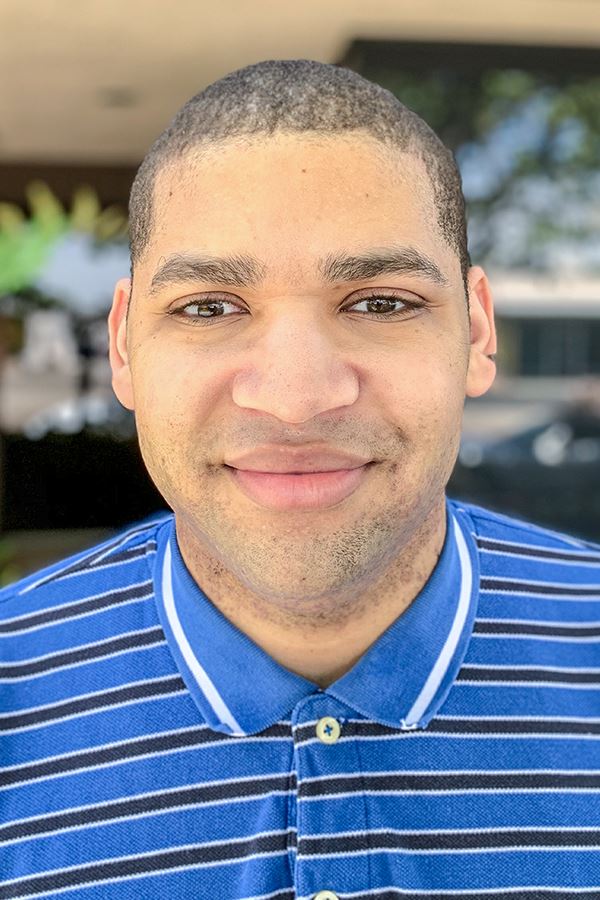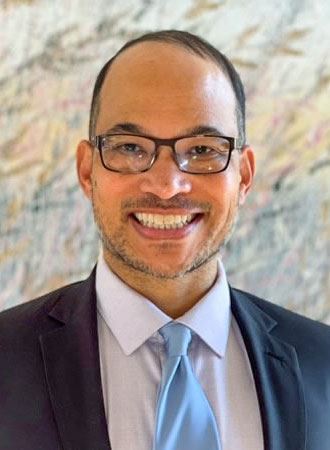No-Stress Records Requests (9am - 12pm)
Bradley Muldrow, Esq. CAMFT Staff Attorney
This is a live streaming event. A recording will be available for viewing for 21 days after the event for anyone who can't attend the live stream. Closed captioning will be available.
“Are my notes sufficient?”
“Do I have to provide the entire record??”
“Could my license be at risk???”
Anxiety-inducing questions like these often flood therapists’ minds the moment they receive records requests from patients, attorneys, insurance companies, or other third parties. However, understanding how to create quality patient records and effectively respond to records requests can allow practitioners to handle such requests with confidence and ease. Join CAMFT staff attorney Brad Muldrow for a helpful overview of the legal and ethical requirements for recordkeeping and responding to records requests.
Educational Goals
Participants will become familiar with notetaking approaches that: 1) are consistent with their legal and ethical obligations; and 2) demonstrate their competence and the effectiveness of their services in case the notes are ever reviewed by attorneys or other third parties during litigation, BBS disciplinary
hearings, or other legal processes. Participants will understand state and federal requirements for responding to records requests from patients, attorneys, insurance companies, and other third parties.
Measurable Learning Objectives
- Recognize the BBS’ recordkeeping standard and identify two additional recordkeeping systems that are utilized by certain third-party payers and employers
- Know how long the law requires them to keep patient records post-termination and why CAMFT recommends that practitioners keep their records for three years beyond that period
- Recognize important legal distinctions between responding to records requests under HIPAA and California law
outline
Recordkeeping
a. What Are Patient Records?
b. Standard for Recordkeeping
c. Recordkeeping Ethics
d. Responsibilities of Supervisors
e. Substance of the Record
f. Approaches to Notetaking
g. Purposes for Notetaking
Maintaining Records
a. Record Retention Period
Responding to Records Requests
a. Records Requests from Patients
◼ HIPAA Requirements
◼ California Law Requirements
b. Providing a Treatment Summary in Lieu of the Record
c. Requests for Minor Patients’ Records
d. Records Requests from Attorneys
e. Records Requests from Insurance Companies
◼ Considerations for In-Network Providers
◼ Considerations for Out-of-Network Providers
f. Records Requests from Other Third Parties
g. Requests for Deceased Patients’ Records
Conclusion
Letters, Testimony and Boundaries . . . Oh My! (1pm - 4pm)
Guidelines to help you Stay within Your Scope of Practice & Competence When Writing Letters and Offering Professional Opinions
Presented by Alain Montgomery, Esq. CAMFT Staff Attorney
Therapists are often asked to write letters, fill out forms and offer professional opinions on behalf of clients. During this three hour presentation, CAMFT staff attorney Alain Montgomery will review key legal and ethical standards for therapists to consider before writing a letter or filling out a form for a client and discuss how to manage the potential outcome of having to respond to a subpoena and/or testify as a witness in a legal proceeding which could result from having rendered a professional opinion on behalf of a client.
Educational Goals
Participants will gain a better understanding of their scope of practice and scope of competence, understand the applicable standard of care that governs their profession and be able to identify the applicable CAMFT ethical standards that relate to writing letters and offering professional opinions. At the end of the workshop, participants will be better equipped to make informed and legally and ethically sound decisions when writing letters on behalf of a client and understand the boundaries around offering professional opinions in court involved cases.
Measurable Learning Objectives
- Distinguish the meaning between a Licensed Marriage and Family Therapist’s (LMFT) Scope of Practice and Scope of Competence.
- Identify the applicable standards of care and relevant sections of the CAMFT Code of Ethics that address issues related to writing letters and offering professional opinions.
- Identify the basic that pertain to writing letters.
- Identify specific considerations for a therapist to evaluate when contemplating whether or not to write a letter or fill out a form on behalf of a client.
- Develop practical guidelines for writing letters and transmitting letters to clients or third parties.
- Identify the types of letters that a therapist is typically asked to write at the request of a client and the situations during which a therapist may be asked to provide a professional opinion in a legal proceeding.
- Determine the steps that can be utilized to manage the potential outcomes of having to respond to a client’s or third party’s request for the client’s record or respond to a subpoena to produce documents or testify in court which could result from having written a letter on behalf of a client.
condensed outline
I. IntroductionII. Applicable Legal, Regulatory, Ethical Standards and Rules for MFT’s
III. Rules that pertain to writing letters
IV. Considerations to Evaluate Before Writing a Letter
V. Practical Writing Guidelines for Crafting Language When Writing Letters
VI. Options for Transmitting Letters
VII. Types of letter requests that a therapist receives
VIII. Filling out Forms on behalf of a client
IX. Outcomes & Impacts for MFT’s Who Write Letters and Fill out Forms on Behalf of Clients
X. Professional Opinions in Legal Proceedings
XI. Best Practices
This is a live streaming 6.0 CEU event. A recording will be available for viewing for 21 days after the event for anyone who can't attend the live stream.
About the Presenters
 Bradley J. Muldrow, Esq. As a CAMFT staff attorney, Bradley J. Muldrow, Esq. takes member phone calls regarding law and ethics issues and contributes articles on those subjects to CAMFT's publication, the Therapist. Prior to joining CAMFT’s legal team, Brad worked on litigation and regulatory matters as an attorney for San Diego Gas & Electric Company. Since becoming an attorney, Brad has given law and ethics presentations to attorneys and judges as a member of the J. Clifford Wallace Inn of Court. He has also served as a board member for the Earl B. Gilliam Bar Foundation, a San Diego-based nonprofit.
Bradley J. Muldrow, Esq. As a CAMFT staff attorney, Bradley J. Muldrow, Esq. takes member phone calls regarding law and ethics issues and contributes articles on those subjects to CAMFT's publication, the Therapist. Prior to joining CAMFT’s legal team, Brad worked on litigation and regulatory matters as an attorney for San Diego Gas & Electric Company. Since becoming an attorney, Brad has given law and ethics presentations to attorneys and judges as a member of the J. Clifford Wallace Inn of Court. He has also served as a board member for the Earl B. Gilliam Bar Foundation, a San Diego-based nonprofit.
 Alain Lance Montgomery, Esq., is a member of the State Bar of California. Alain received a Bachelor of Arts degree in Political Science from the University of California at Berkeley and a Juris Doctor degree from Thomas Jefferson School of Law. Prior to joining the CAMFT legal department, Alain worked in public interest law as a legal advisor for the Superior Court of California where he helped self- represented parties navigate the complexities of small claims litigation. As a member of the CAMFT legal department, Alain has served as part of the support staff for the CAMFT Ethics Committee and has represented the Association at various state regulatory board meetings. After graduating from college and before attending law school, Alain worked as a ski instructor at Mammoth Mountain Ski Resort.
Alain Lance Montgomery, Esq., is a member of the State Bar of California. Alain received a Bachelor of Arts degree in Political Science from the University of California at Berkeley and a Juris Doctor degree from Thomas Jefferson School of Law. Prior to joining the CAMFT legal department, Alain worked in public interest law as a legal advisor for the Superior Court of California where he helped self- represented parties navigate the complexities of small claims litigation. As a member of the CAMFT legal department, Alain has served as part of the support staff for the CAMFT Ethics Committee and has represented the Association at various state regulatory board meetings. After graduating from college and before attending law school, Alain worked as a ski instructor at Mammoth Mountain Ski Resort.
 Complies with 6 hour Law and Ethics requirements for Continuing Education required by BBS. No CEs will be awarded to persons arriving late or leaving early. Partial CE credit will not be awarded. Includes: 6 hours of continuing education credit for LMFTs, LCSWs, LPCCs, and/or LEPs as required by the California Board of Behavioral Sciences. Sacramento Valley Chapter of California Marriage and Family Therapists (SVC-CAMFT) CAMFT CEPA CE Provider #62279 is approved by the California Association of Marriage and Family Therapists to sponsor Continuing Education for LMFTs, LCSWs, LPCCs, and LEPs. SVC-CAMFT maintains the responsibility for the program and all its content. CE Credit will be awarded after the completion of the course via email in exchange for a completed course evaluation form.
Complies with 6 hour Law and Ethics requirements for Continuing Education required by BBS. No CEs will be awarded to persons arriving late or leaving early. Partial CE credit will not be awarded. Includes: 6 hours of continuing education credit for LMFTs, LCSWs, LPCCs, and/or LEPs as required by the California Board of Behavioral Sciences. Sacramento Valley Chapter of California Marriage and Family Therapists (SVC-CAMFT) CAMFT CEPA CE Provider #62279 is approved by the California Association of Marriage and Family Therapists to sponsor Continuing Education for LMFTs, LCSWs, LPCCs, and LEPs. SVC-CAMFT maintains the responsibility for the program and all its content. CE Credit will be awarded after the completion of the course via email in exchange for a completed course evaluation form.
This program will benefit LMFT, LPCC, LEP and LCSW licensees and pre-licensees.
EVENT POLICY INFORMATION

